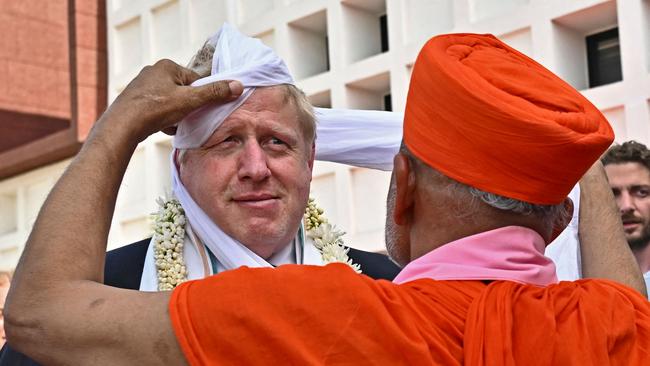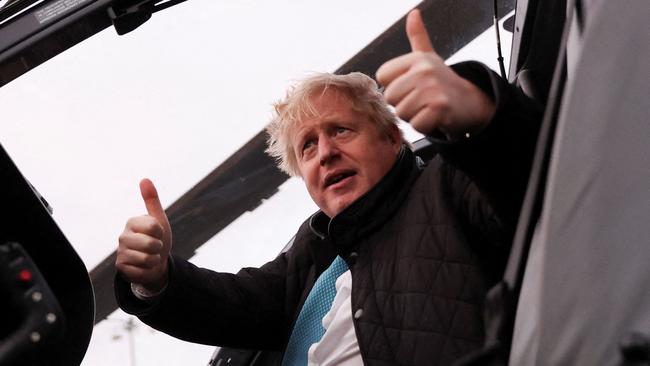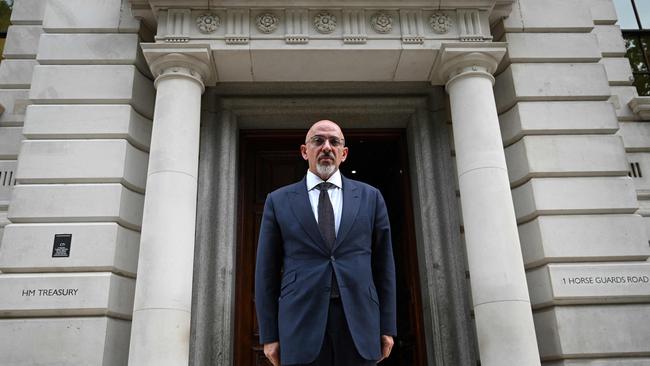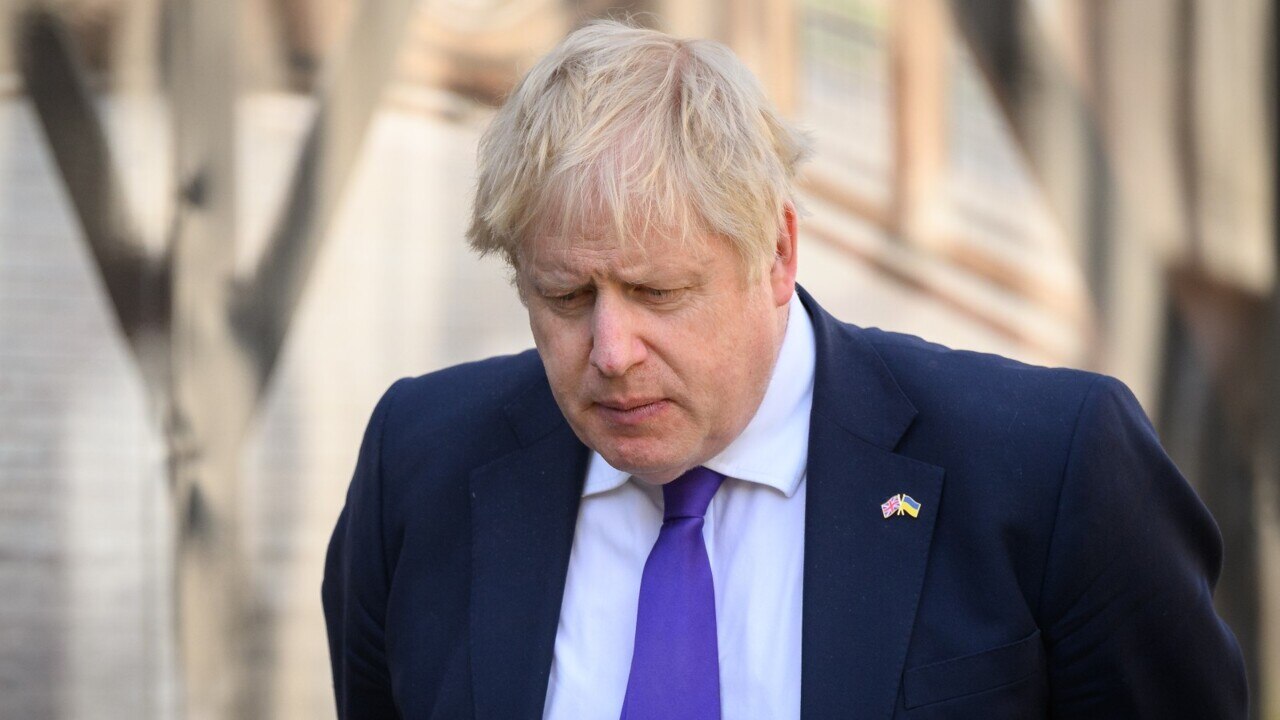The dangerous appeal of ‘outlaw’ politicians

This description of Winston Churchill’s finances by Roy Jenkins makes the whole thing sound pretty orderly. But in fact the wartime prime minister’s finances were a shambles for his whole life. A combination of excess, gambling and poor investments left him often scrabbling for money, seeking inappropriate assistance from others and distracted at important moments.
It seems as if in this, at least, Boris Johnson has lived up to his great hero. Recent revelations — on top of what we already know about his wallpaper — suggest that attempts to shore up his finances preoccupied the former prime minister, pulling in many of those around him. High officials and those aspiring to be high officials were tangled in knots, producing difficult conflicts.

The obvious conclusion from this is that while there was a lot of debate about whether the country could afford Johnson to be prime minister, we may have spent too little time considering whether Johnson could afford to be prime minister. He had incurred the financial obligations of an extremely highly paid man — with numerous marriages and children — but without the savings to match. The prime minister’s salary, high though it is, was simply not enough.
Churchill fitfully accepted the impact of his finances on his career. The best account of his financial travails (No More Champagne by David Lough) suggests that he quit the Conservative front bench in the 1930s partly “to devote sufficient time to writing books and churning out newspaper columns to keep the bank at bay”.
Johnson — along with his allies — appears unwilling to accept a similar constraint. He has repeatedly sought high office that he struggles to be able to afford, and apparently he still seeks it. Jacob Rees-Mogg responded to stories about Johnson borrowing money based on a guarantee from his cousin with the suggestion that he be made party chairman. In the unlikely circumstances that Rishi Sunak thought this was a good idea, Johnson would be taking over from another politician whose way of organising his finances was incompatible with high political office. Whatever the legality, or even ethics, of Nadhim Zahawi’s tax affairs, what he was doing wasn’t tenable for a senior minister.

So what persuades either of them that their behaviour was reasonable and politically acceptable? This era isn’t Churchill’s. Surely they could see that? The standard explanation, particularly in Johnson’s case, is that it was just another example of his famous belief in having his cake and eating it. The hope was that each of them could stay just ahead of the investigating officer. That they would court trouble but it would never quite be terminal.
But while this personal explanation has some merit, I don’t think cakeism is the whole story. I don’t think that what Johnson and Zahawi have been up to is mere personal foible. I think it is a political idea. Or, in fact, two allied political ideas.
The first idea is that people mostly don’t care about political scandal. They don’t follow the stories closely, don’t believe either the accused or the accusers, think all politicians are up to their neck in it anyway, don’t know who most of the protagonists are, and quickly forget even those things they notice.

Talk of who is or isn’t the ethics adviser and what does or doesn’t break the ministerial code (the what?) passes most people by. No one — besides the politically obsessed — has the slightest clue whether the government does or does not currently have an ethics adviser. So the fact that the prime minister sought a Tory donor to pay for his wallpaper barely caused a ripple in public opinion. Donald Trump’s experience seemed to be that even quite lurid scandals did not derail him. He won the presidential election despite having been caught on tape saying that he could “grab [women] by the pussy”.
Yet there is another political idea, more outlandish even than this one. It is that the public actually like rule-breaking. That they think the rules are made by the establishment to protect itself and not them. So politicians who transgress, who are rule-breakers, are “outlaws” of the Dick Turpin and Butch Cassidy kind, capturing the romantic imagination as they defy the authorities.
It is easy to dismiss both these notions as delusional. The best explanation of the parties scandal is that everyone involved thought they wouldn’t get caught, or if they did get caught it wouldn’t matter, or if it did matter people might actually be sympathetic to a little bending of the rules as they had engaged in it themselves. This judgment turned out to be spectacularly wrong.
Yet despite this, there is just enough truth in the ideas to make them phenomenally dangerous.
People certainly do have a limited appetite for stories of Westminster wrongdoing and are disinclined to pay much attention or to remember. By the next election most people will have forgotten all about Zahawi’s tax affairs and, barring further revelations close to polling day, about Zahawi altogether. I’m not saying they should have forgotten, or that everyone will have forgotten, just that most will have.
And there is clearly a demographic to whom buccaneering appeals, to whom the chaos of Johnson’s personal arrangements seems like a welcome break from establishment smoothness. Who somehow regard all that stuff about cousins and £800,000 as an endearing anti-elitist act. Particularly in contrast with Sunak, who has no need for such loans.
In his new book The Crisis of Democratic Capitalism, the journalist Martin Wolf writes of how fragile is the marriage of democracy and capitalism, and how easily rent asunder. He correctly identifies as a major threat the rise of pluto-populism, uniting the economic interests of the super-wealthy with a politics of cultural division. And ignoring institutional constraints is a step in this direction.
In the same way that Johnson’s hairstyle is consciously rather than unconsciously messy, something similar can be said of his financial affairs. As they can of Zahawi’s. They are the result not simply of the carelessness of which the tax authorities have complained. Instead they represent an idea about the irrelevance of political norms and standards in public life. They are a far more important challenge than the individual scandals might suggest.
As Wolf argues, asserting the importance of the rules by which democratic capitalism operates is the great challenge of the coming decades. It would be a mistake to believe complacently that in a challenge between the rules and the rule-breakers, the rules are bound to win.



“Churchill evolved two firm rules which he followed faithfully for the rest of his life. The first was that expenditure should be determined by needs (generously interpreted) rather than by resources . . . Second, he decided that when the gap between income and expenditure became uncomfortably wide, the spirited solution must always be to increase income rather than reduce expenditure.”